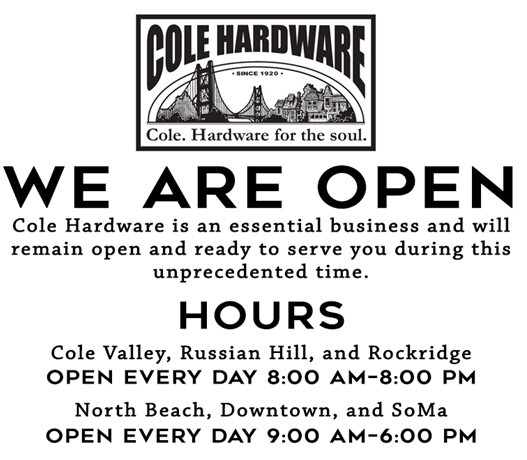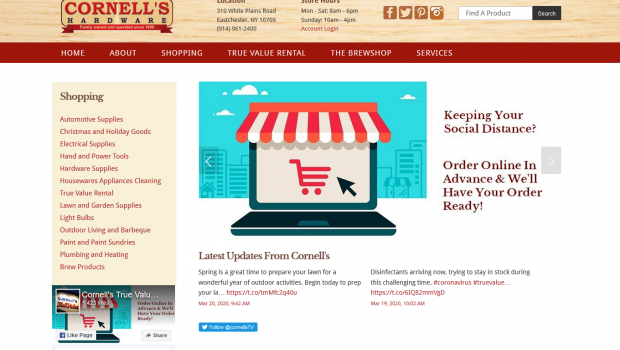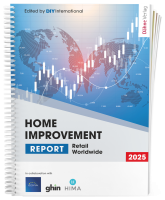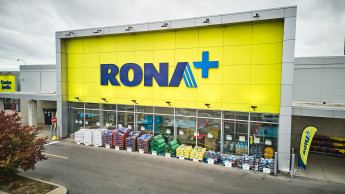NRHA developed a letter explaining the essential role hardware stores play in America's economy, had it co-signed by seven major industry leaders (wholesalers and wholesale group executives) and sent it to the governors of all 50 American states so that if they planned to temporarily shut down retail stores to prevent the virus's spread, as was expected and which did take place, hardware stores, along with groceries and pharmacies, would be spared as essential. The letter was also sent to all of NRHA's thousands of members and many of them sent copies of the letter to their members in the US House of Representatives and Senators in Washington. Undoubtedly, local officials will also got copies.
In San Francisco, California, one of the largest cities especially hard-hit, hardware stores officially have been designated as "essential" along with grocery stores and pharmacies.
How have retailers been coping from an operational standpoint? Like other retailers, many have been reducing the hours they are open in order to clean and sanitise fixtures, displays and other elements of their business. Some, like other retailers, have set aside early opening hours for senior citizens, the group most endangered by Covid-19.
They also have been coping with the problem of how to handle business if some of their employees get sick. They face the operational problem of handling business with fewer staff on hand, but they also are trying to figure out how to handle paying employees who are absent because of the virus. While most retailers offer some type of medical payment for full-time employees, hardware stores and home centres also employ part-timers, most of whom are not covered by the companies' medical insurance.
Many retailers are emphasising their online sales channels and pickup in store service, a process which limits personal contact. Others are encouraging customers to order via email or on their web sites and have the merchandise delivered - again to reduce or minimise personal contact.
Of course, also in the USA, the virus has forced people to change their daily lives. One of the first actions taken across the nation was to close schools to protect the students, and many retail stores also have been closed. Trade shows like the upcoming National Hardware Show, scheduled for early May, have been postponed, as well as other meetings and conventions of all types and sizes.
America's president urged people to limit the size of groups in which they mingle to ten people. At first, it was felt that groups should not exceed 250 people, then the number was dropped to 50 before it was set at ten. Bars and restaurants can no longer function as they previously did with sit-down facilities and table service and now are limited to take-out and delivery business.



 Menü
Menü














